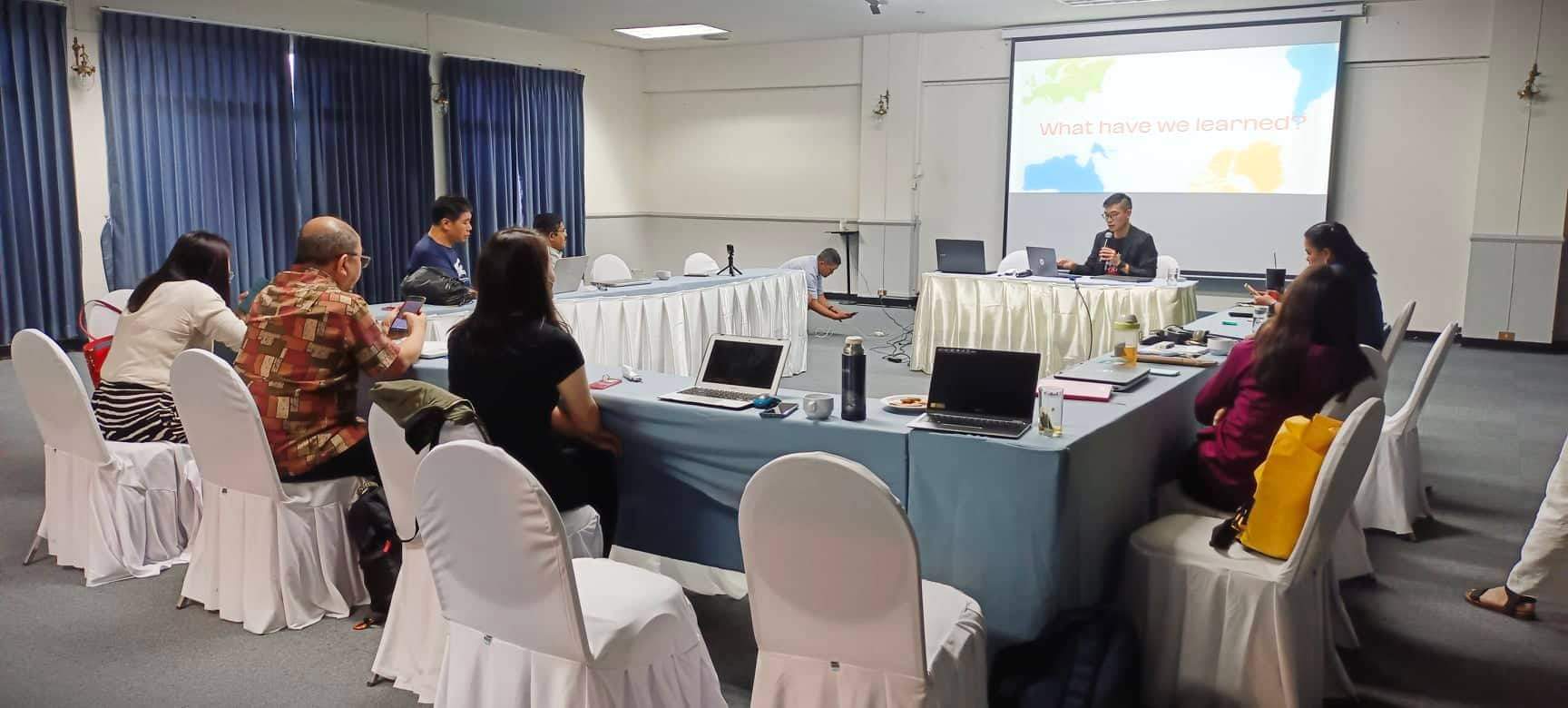Global Alternative Tourism Network (GATN)
GATN Task Force and Managers meet on the 10th anniversary of GATN
Last Updated (Tuesday, 01 November 2022 14:51)
Alternative Tourism promotes fair and just forms of travelling activities between members of different communities to achieve mutual understanding, solidarity and equality amongst the participants. It is a form of tourism that has a minimal negative impact on the physical and sociocultural environment in destination areas, and the local community substantially benefits from the tourism programme.
Unlike mass tourism, the main characteristics of the YMCA Alternative Tourism follow the “CHANGE” principles that seek to be Community centred, Holistic in approach, Advocating global citizenship, Nature conserving, Gender and child-sensitive, and Economically viable.

Read more: GATN Task Force and Managers meet on the 10th anniversary of GATN
GATN networking with BERJAYA University College, Malaysia
COVID-19 brought global travel and tourism industry to a standstill for almost 3 years. Despite the setback brought about by global lockdowns, travel and tourism industry remains one of the most important industries that creates jobs and brings in foreign exchange. Hence, many countries, especially the Small Island developing States and least developed countries are looking forward to the reopening of international borders and the resumption of international travel to rebuild their battered economies.
Travel and tourism may bring a lot of economic gains but uncontrolled travel and tourism have their negative consequences. In recent years, researches have begun to raise awareness of some negative impacts of uncontrolled tourism. Overtourism is a relatively new word in the tourism industry. It is used to describe a situation in which too many tourists visiting a particular destination and conflicts arise between locals and visitors at tourism destinations. Overtourism is when rent prices push out local tenants to make way for holiday rentals. Overtourism is when tourist consumption creates inflation in cost of goods and services. Overtourism is when narrow roads become jammed with tourist vehicles.
Tourism also impacts climate change. As the world becomes more affluent, the tourism sector is expected to grow by an average of 4% annually. This pursuit of economic growth comes with a significant carbon burden, as tourism is significantly more carbon-intensive than other potential areas of economic development. A Yale Digest reports that 80% of all flights were for holiday reasons and tourism accounts for 8% of Global CO2 Emissions. Tourists are offenders, too. Their holiday consumption habits contribute to increased use of energy, water and other natural resources. The consumerist nature of mass tourism contributes to an unsustainable activity that seriously challenges the sustainability of our planet earth.
Read more: GATN networking with BERJAYA University College, Malaysia
“Virtual Volunteers”
In 2020, a virus struck the world hard, and the world was at a standstill. With the impact of lockdown and international travel restrictions, our plan to promote GATN had no choice but to stop adjusting to the significant change.
For Taichung YMCA, this is a big change; with all the volunteerism project had to stop, we need to rethink our strategy and adapt to the new covid era. In the past few years, we’ve contributed to promoting the GATN concept to more people. So, we start to discuss, “What can we do now and what’s GATN means in times like this?”
We decided to do our GATN in a “virtual” way with all the consideration and preparation. When people worldwide use a platform like a zoom and apps to communicate, we can use technology to travel alternatively; therefore, “virtual volunteer” was born.
When Covid struck the world, all outdoor activities were barred, people were locked up at home like a bird in a cage. Many researches have shown that due to the pandemic and lockdown, mental health has been troubled.
With the “Virtual Volunteer” program, we focus on mental and spiritual support as our service because this is equally important for a community. With over 12 working partners worldwide, we gather youth from all the places in our country and serve each other, not actual work like construction or teaching class, but healing hearts with warmth and care and sincere concern.
We are doing this “virtual volunteer” program unlike any other; we don’t want to see young people sitting in front of the computer and watch PPT and introduction Videos like they are in school. Instead, we use our activities experiences and designing skills to create a different event for both sides. We invite young leaders and make them discuss what kinds of culture or life story they want to share, and let more people on the other side of the monitor feel engaged and more interested in your country, after a total of 40hours of time. More than 200 participants, in the end, we are amazed about our young people’s creativity and idea. They have turned the concept of “virtual meeting” into a “virtual party”. Whether the participants have ever visited the country before, after the activity, they are so close to the locals and have the desire to know more and want to travel the country after the pandemic. Therefore, we think this can also be considered as “an alternative way of tourism”.
We have got so many positive feedback from the participants and fun during the event. In the Philippines, we were exchanging our secret recipes. We used a GoPro camera to stimulate the first-person view to make your bubble tea in Mongolia. In Sri Lanka, we get to build our zoo through various games. In Malaysia, we had a wonderful live food show and a virtual campfire with singers and musicians. These amazing not just let more people know about YMCA’s young people and more about the country, most of all we get together and pray and give blessing to each other in difficult time like this. Volunteers do not have to do real things to help; mental help is also a good thing to serve.






